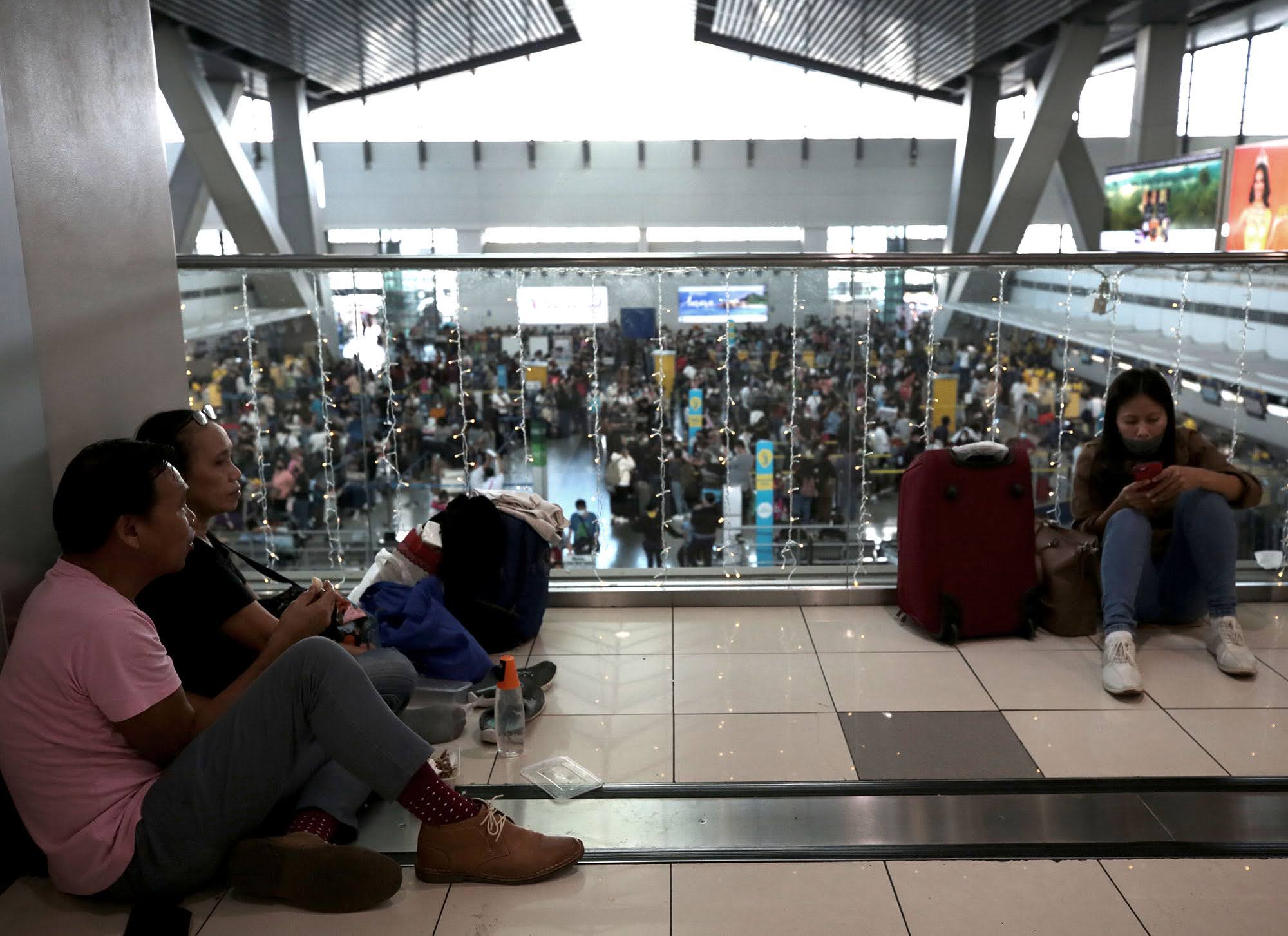Independent team to handle airport ‘glitch’ probe

FILE PHOTO: Passengers queue at Ninoy Aquino International Airport Terminal 3 in Pasay City as they wait to board their flights following the resumption of airport operations on Monday, Jan. 2, 2023. INQUIRER file photo / RICHARD A. REYES
Transportation Undersecretary for Aviation Roberto Lim told congressmen on Wednesday that an independent and external team was currently investigating the details of the technical glitch that resulted in the total shutdown of the entire Philippine airspace on New Year’s Day.
According to the Department of Transportation (DOTr), the investigating body consists of representatives from their agency, the Department of Information and Communications Technology (DICT), the Cybercrime Investigation and Coordinating Center (CICC), the National Bureau of Investigation, and the National Intelligence Coordinating Agency.
“Usec Lim added that the Civil Aviation Authority of the Philippines (Caap) inhibited from participating in the investigation,” the DOTr said in a statement.
According to Lim, the investigation of the incident could take weeks before they could submit the findings and recommendations to the committee.
Lim noted that a vulnerability test was being conducted on both the Communication, Navigation and Surveillance/Air Traffic Management (CNS/ATM) system and its equipment.Airport authorities earlier attributed the New Year’s Day mess to the power outage in the CNS/ATM system, which, according to the Caap, was “outdated.”
Article continues after this advertisement“Our CNS/ATM was conceptualized way back in the late 90s, started in 2010 and completed in 2019. So as far as technology is concerned, it is already outdated,” said Caap Director General Capt. Manuel Tamayo.
Article continues after this advertisementOn Wednesday’s briefing at the House of Representatives committee on transportation headed by Antipolo Rep. Romeo Acop, CICC head Executive Director Alexander Ramos was rebuked by lawmakers for blaming budget cuts in his office for his inability to find out in the shortest time the possibility of a cyberattack behind the fiasco.
Ramos told the lawmakers that his office has been involved in assessing the CNS/ATM facility since Jan. 2 and initially found that the glitch had been caused by an electrical problem but is still in the process of determining the likelihood of a cyberattack.
Asked by Parañaque Rep. Gustavo Tambunting if there was an indication that a cyberattack caused the “electrical problem,” Ramos said, “As far as we’re concerned on the power supply side, it’s an off-grid system. There [is] no remote access to that system so cyberattack has not been an issue as far as our investigation is concerned yet.” The CICC head explained that the probe is not yet complete since the Caap system involved broad technology.
When Tambunting asked if the cyberattack aspect was not being given importance in the probe, Ramos said, “It is very important especially that it’s your eyes to the sky,” but pointed out, “Our budget was cut. Actually that cut rather than the budget that was requested for was not given. We’re not even asking for an increase. Our capability to do fast-tracking and forward-looking systems, tools, capability for us to look cannot be purchased.”
Acop told Ramos, “Your statements are not reassuring as far as this representation is concerned. The budget is finished. It’s done and now you’re telling us, you cannot do your job 100 percent because of budget cut?” To which the CICC head replied, “We cannot do it fast enough.”
DICT Cybersecurity Bureau Director Maria Victoria Castro assured the lawmakers that her office has been in touch with the Caap since Jan. 2 and has been investigating the possibility of a cyberattack. She pointed out that the probe usually took a minimum of six weeks.